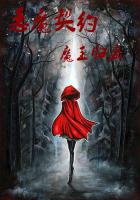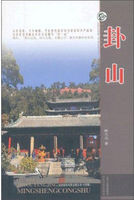"She's too young, Mary, she's not yet seventeen," said Paddy quickly, remembering another parental shortcoming; none of his children had been taught to dance.
"What a pity," said Mary Carson.
It was a splendid, sumptuous, brilliant, glorious party; at least, they were the adjectives most bandied about. Royal O'Mara was there from Inishmurray, two hundred miles away; he came the farthest with his wife, sons and lone daughter, though not by much. Gilly people thought little of traveling two hundred miles to a cricket match, let alone a party. Duncan Gordon, from Each-Uisge; no one had ever persuaded him to explain why he had called his station so far from the ocean the Scots Gaelic for a sea horse. Martin King, his wife, his son Anthony and Mrs. Anthony; he was Gilly's senior squatter, since Mary Carson could not be so called, being a woman. Evan Pugh, from Braich y Pwll, which the district pronounced Brakeypull.
Dominic O'Rourke from Dibban-Dibban, Horry Hopeton from Beel-Beel; and dozens more.
They were almost to the last family present Catholic, and few sported Anglo-Saxon names; there was about an equal distribution of Irish, Scottish and Welsh. No, they could not hope for home rule in the old country, nor, if Catholic in Scotland or Wales, for much sympathy from the Protestant indigenes. But here in the thousands of square miles around Gillanbone they were lords to thumb their noses at British lords, masters of all they surveyed; Drogheda, the biggest property, was greater in area than several European principalities. Monegasque princelings, Liechtensteinian dukes, be- ware! Mary Carson was greater. So they whirled in waltzes to the sleek Sydney band and stood back indulgently to watch their children dance the Charleston, ate the lobster patties and the chilled raw oysters, drank the fifteen-year-old French champagne and the twelve-year-old single-malt Scotch. If the truth were known, they would rather have eaten roast leg of lamb or corned beef, and much preferred to drink cheap, very potent Bundaberg rum or Grafton bitter from the barrel. But it was nice to know the better things of life were theirs for the asking.
Yes, there were lean years, many of them. The wool checks were carefully hoarded in the good years to guard against the depredations of the bad, for no one could predict the rain. But it was a good period, had been for some time, and there was little to spend the money on in Gilly. Oh, once born to the black soil plains of the Great Northwest there was no place on earth like it. They made no nostalgic pilgrimages back to the old country; it had done nothing for them save discriminate against them for their religious convictions, where Australia was too Catholic a country to discriminate. And the Great Northwest was home.
Besides, Mary Carson was footing the bill tonight. She could well afford it. Rumor said she was able to buy and sell the King of England. She had money in steel, money in silver-lead-zinc, money in copper and gold, money in a hundred different things, mostly the sort of things that literally and metaphorically made money. Drogheda had long since ceased to be the main source of her income; it was no more than a profitable hobby.
Father Ralph didn't speak directly to Meggie during dinner, nor did he afterward; throughout the evening he studiously ignored her. Hurt, her eyes sought him wherever he was in the reception room. Aware of it, he ached to stop by her chair and explain to her that it would not do her reputation (or his) any good if he paid her more attention than he did, say, Miss Carmichael, Miss Gordon or Miss O'Mara. Like Meggie he didn't dance, and like Meggie there were many eyes on him; they were easily the two most beautiful people in the room.
Half of him hated her appearance tonight, the short hair, the lovely dress, the dainty ashes-of-roses silk slippers with their two-inch heels; she was growing taller, developing a very feminine figure. And half of him was busy being terrifically proud of the fact that she shone all the other young ladies down. Miss Carmichael had the patrician features, but lacked the special glory of that red-gold hair; Miss King had exquisite blond tresses, but lacked the lissome body; Miss Mackail was stunning of body, but in the face very like a horse eating an apple through a wire-netting fence. Yet his overall reaction was one of disappointment, and an anguished wish to turn back the calendar. He didn't want Meggie to grow up, he wanted the little girl he could treat as his treasured babe. On Paddy's face he glimpsed an expression which mirrored his own thoughts, and smiled faintly. What bliss it would be if just once in his life he could show his feelings! But habit, training and discretion were too ingrained.
As the evening wore on the dancing grew more and more uninhibited, the liquor changed from champagne and whiskey to rum and beer, and proceedings settled down to something more like a woolshed ball. By two in the morning only a total absence of station hands and working girls could distinguish it from the usual entertainments of the Gilly district, which were strictly democratic.















